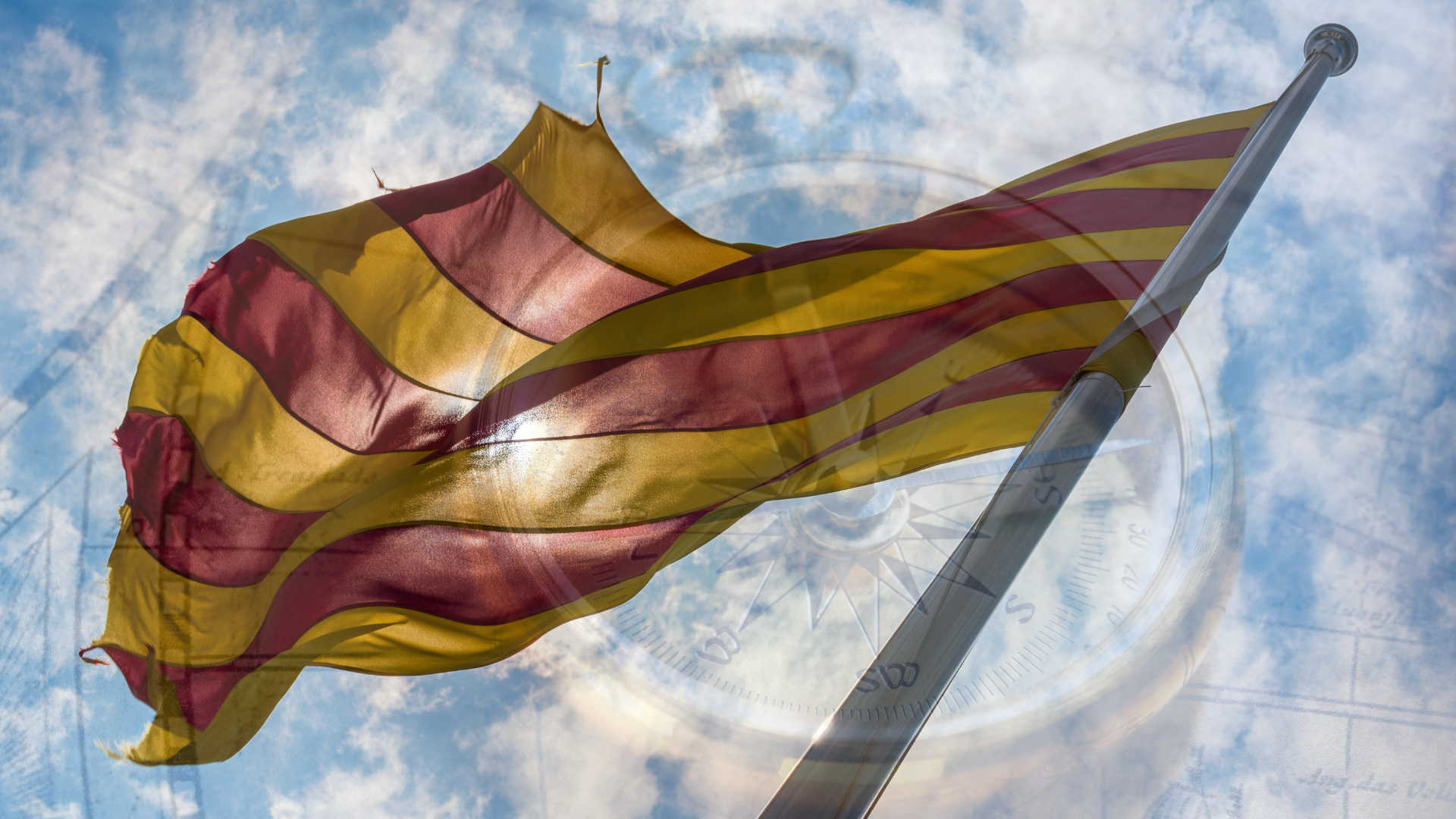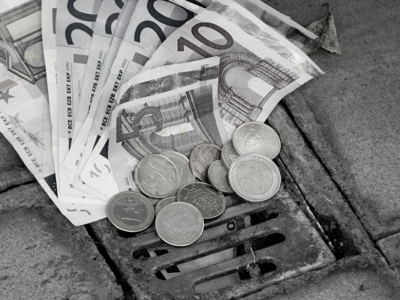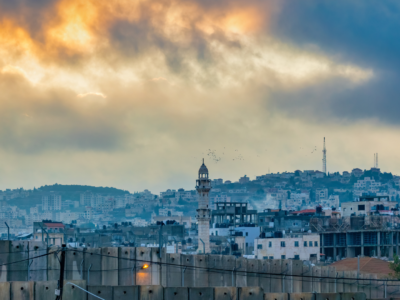Is “Catalan geopolitics” possible?

By Miquel Vila
19/09/2022
There is no area where the weakness of Catalan national thought is more clearly ostensible than in the absence of Catalan geopolitics. This series of essays aims to point out that when international politics are discussed in Catalonia, its own interests are absent in most analyses. In this regard, the goal of these articles is to pave the way for the development of a modern geopolitical debate on international affairs, but with a focus on the interests and reality of Catalans. Such a discussion should take the geopolitical trends and visions present in the country’s history as a starting point to chart a Catalan geopolitical orientation that will allow us to take on the challenges of the 21st century and rethink our place in the world.
Why is there no Catalan geopolitics?
Since Russia invaded Ukraine, it has become a cliché to say that the world has changed. Rather, the mistake lies in thinking that the world, deeply shaped by human nature, did change as much as it was supposed to after the fall of the Soviets. We have entered a decade where the certainties and promises that had been built in the post-Cold War era have collapsed. It is already obvious to everyone that today’s world has not led to a post-historic horizon based on the construction of a liberal global society but to the renewal of the geopolitical conflict between countries. The future is shaped by the decline of international organizations and by the strained tensions between the United States and China, the recovery of Russia, the rise of other non-Western powers, and the greater incompatibility of interests between European nations.
The fate of Ukraine has shown us the raw reality of power. The West in general, and Europeans in particular, have not been able to react accordingly to a world unmasked. The realization of this misunderstanding is even more acute in Catalonia. The only thing that has really changed is that the distance from the world’s cruelty has been shortened, and now we find it closer to home. Beyond Ukraine, in the last two years, we have witnessed the crisis unfolded by the COVID-19 pandemic, the price of energy, inflation, product shortages, and mass migration and the plight of refugees. Those are all international events that have ended up having a direct impact on our daily lives. There is practically no problem in our society that can be fully explained without taking a global view – not even the Catalan national question.
These issues are discussed at length in Catalonia. Nonetheless, when we talk about international politics, something usually does not quite fit. In most cases, the information is more or less correct, but Catalonia is neither the center of concern nor the lens through which we analyze what is happening in the world. It is even often difficult to perceive a Catalan accent that explains reality through some of the ideas of our traditional thought and worldviews.
Throughout Modernity, and especially in a world with hyper-connected international information, it is quite normal that the currents of thought and opinion from the most influential countries have left their mark everywhere. Despite this , when we talk about international affairs, all self-aware nations always try to stress their own interests. Without going any further, the international information produced in Madrid is very much aware of Spain’s interests in global affairs. What is strange is that in the Catalan media sphere, we rarely find an approach to international politics that is specifically focused on the interests of Barcelona.
It is undeniable that Catalans like to talk about the world, and above all, we like the world to talk about us. Nevertheless, we have become so obsessed with knowing what the world thinks about the Catalans that we have neglected to work on how we should think about the world from our own reality. The underlying problem, which explains why this is the case, is that Catalonia has lost a clear geopolitical orientation, which has led to the adoption of apparently universal analytical frameworks that do not have a clear geographical point of reference. The reason for this geopolitical disorientation is due both to a matter of the global context – the hegemony of the ideas of liberal internationalism that spread throughout the world after the fall of the Soviet Union – and to the specific Catalan context. Since the Catalan nation has not enjoyed a state of its own for centuries, it has been excluded from the politics of the state system and therefore has lost the ability to connect with the dynamics of this political structure. On an ideological level, we must add the cultural impact of not having a state and the historical trauma of the shame of the defeats that constitute the Catalan epic. These facts have generated a deep-rooted perception of the Catalans’ inability to exercise hard sovereign power. By way of compensation, the Catalans have chosen to become a nation whose sole reason for being is to project moral virtue to the world.
Post-Cold War mainstream ideology developed a framework of post-spatial analysis that constructs universal threats without taking much into account of either the reality of the narrator or that of the places where the narrated events take place. Here we see how the international ideological context and the local Catalan context are interrelated, since a post-spatial approach is a shortcut for a society that wants to talk about the world but still has no real place in the world. If even strongly consolidated states have been through difficulties in articulating a framework of thought about international affairs detached from both external interests and the ideological frameworks of liberal internationalism, how should the same not happen to Catalonia, which lacks a state power structure? In this case, it is even easier to be carried away by the dominant currents of thought in the international arena. Such a situation reinforces the presence of these ideas in our homeland while simultaneously making it more difficult to go beyond them.
Why is a “Catalan geopolitics” necessary?
The repercussions of this situation are clear: if we do not know what our point of departure is, we will never know where we want to go. Without geopolitical thinking, we are not able to understand how the world impacts the Catalans, nor how Catalans can impact the world. Beyond the affairs of high politics, the consequence of this reality is a progressive disarmament of the citizens. Treading a path in an incomprehensible world means that our society has difficulties understanding itself. There is no national policy without international policy.
When Catalonia enters the topics of international debate, it often does so as an object and rarely as a subject. We have noticed this, especially in the internal discussions of the pro-independence camp, more concerned about what the world – often understood as the West – would do for Catalonia and less about what Catalonia could offer other countries; and to an even lesser extent, how Catalonia could act to build a world more suited to itself. Thus, even if we consider what a sovereign Catalonia can offer the world, it is vitally important to know in the first place where Catalonia is. In other words, we must first build our own geopolitical world-view around which we can resolve the different questions we might ask ourselves about Catalonia’s relationship with the world.
The first way to break the current limitations is precisely to change the instruments of thought. The reality of an interconnected world is undeniable. In fact, what is important is to break the widespread view of the meaning of this interconnection. Political analysis tells us that the costs and benefits of any public issue are not distributed equally among all members of a society – be it local or global. This is an eloquent way of saying that “the problems of the world” do not exist because what is a problem for some can be a blessing for others. The uneven impact of the Kyoto Protocols against global warming, which finally led to its absolute failure, is an illustrative example of this reality. In this sense, geopolitical reasoning is presented as an essential instrument because it focuses on making us notice that things happen in some places and not in others for a reason.
Post-geographic frameworks of thought have often been accompanied by post-political solutions, i.e., they replace the analysis of power relations with moral judgments and technocratic solutions. Viewed from a cosmopolitanism that has often been nothing more than the imposition of a vision of the reality of one part of the world as a universal truth, a false dichotomy has been presented between globalization and geographically self-centred thought. However, the political developments we are seeing around the world point us in the opposite direction. Precisely because we live in a totally interconnected world, it is increasingly important to be aware of the specific place our country occupies in it – which is not the same as that which others occupy – to be able to identify the currents of global events that will irretrievably end up arriving home, and that can pose an opportunity – or a threat.
To be able to do so, we need to cultivate our own geopolitical vision that can adequately adapt the ideas from the different international stimuli which we receive without losing sight of our centre of gravity. This fact implies switching from sparse and scattered geopolitical thinking to solid geopolitical thinking, allowing us to locate and orient ourselves in the world. Besides, a key goal is to know how we Catalans should act in relation to the world and how we should act internally.
Is “Catalan geopolitics” possible?
At this point, the reader will not fail to discern that, beyond the ideological dimension, we cannot leave aside the essential question of power or, to put it in other words, the lack of Catalan power organized around a state structure.
One of the reasons for the absence of realist geopolitical proposals produced from Catalonia is precisely the fact that the Catalan nation has been practically outside the state system for a large part of its modern history. On the other hand, believing the fact that having a state of its own – or having consolidated power – is an essential condition for thinking in terms of power would entail a negative tautology: since an actor has no power, they cannot think in terms of power, and if they do not think in terms of the power they will hardly be able to become a powerful actor. Catalan geopolitics could not exist without a Catalan state, and therefore it would not make sense to invest efforts in answering the question that we are trying to address here.
If this premise were true, we would have to accept that geopolitical thinking has never existed in Catalonia, not even at a speculative stage. Nor could we explain any independence or any of the changes in power relations that have occurred throughout human history. Having power and the desire to obtain power are usually interlinked. That is without any doubt a key and self-evident fact: no nation has achieved the conquest of its state without having strong currents of geopolitical thought in the first place as its driving force. In fact, one of the first steps of any modern nationalist movement is drawing a map that locates the contours of its nation and its preferred spheres for foreign action. This map goes hand in hand with more or less truthful historical reinterpretations that build the geopolitical imaginary on which the national movement is to build its master lines of external action.
Having said that, the most interesting period in Catalonia in terms of geopolitical intellectual production is surely the first half of the 20th century. At that historical moment, we saw in Catalonia the coincidence of a booming economy, reviving Catalan cultural power, and the consolidation of Catalan nationalism as a mass movement with strong political capital. It was during that period that Catalan nationalism seemed to become more concerned about geopolitical issues and the international projection of Barcelona, as shown – despite its poor execution – by the imperial metaphors of Prat de la Riba, Eugeni d’Ors, Joan Estelrich, and the diplomatic activities of Catalan nationalism in the twenties and thirties.
In this sense, it is necessary to highlight two important figures who worked more or less explicitly on this issue. One is Josep Maria Batista i Roca, who, without talking directly about geopolitics, would use Toynbee’s theories to describe a geopolitical thought, as identified by Frederic J. Porta. Above all, we can perceive this type of thought in the work of Jaume Vicens Vives, the initiator of the classic geopolitical school in Catalonia. In fact, during the 1930s, Jaume Vicens Vives wrote a book on the geopolitics of Catalonia, which he would use as the basis of the book “España, geopolítica del estado y del Imperio” (“Spain, Geopolitics of the State and the Empire ”), published in 1940 during his subsequent collaboration with Francoism. Despite its ideological limitations, the geographical and historical analysis of Jaume Vicens Vives is a valuable starting point for the series that opens with this essay, but it is by no means sufficient to build a Catalan geopolitical thought.
Therefore, in Catalonia, as elsewhere, we need three elements to develop our own geopolitical framework: geography, a core of power, and history. In this sense, we know very well that Catalonia enjoys the conditions to develop its own geopolitical thought.
The Catalan territory, inserted in the north-west of the Mediterranean, is a highly connected area in the midst of the routes that connect Europe with Africa, the routes of the Mediterranean Sea as a whole, and beyond these areas, the Atlantic and the Indo-Pacific. The nucleus of Catalan power is located on the coast in solidarity with the mountainous interior, but ever since the Middle Ages, it has established Barcelona as the centre of a network of cities that expands beyond the Ebro River and the Pyrenees Mountains range. Finally, it has a history that allows us to unearth dynamics that has taken place repeatedly throughout the centuries, from the Iberians to the Romans through to the birth of the Catalan people and our ideas. The period of fullness that Catalonia attained in the Middle Ages when sovereign Catalan institutions had external political and commercial activities is of particular importance that will help us identify long-range geopolitical trends.
In this sense, we can identify three major geopolitical trends having an impact on Catalonia that have produced three visions of Catalonia’s place, role, and direction in the world. First, the Trans-Pyrenean trend that looks toward the heart of Europe accompanied by a “Carolingian vision.” Second, the Iberian trend that orients Catalonia towards the heart of the Iberian Peninsula has given birth to what we will call the “Hispanic vision.” Third, the Mediterranean trend, which focuses on the Mediterranean Sea and the regional and global connectivity capabilities that it offers, building the “Thalassocracy vision.” These geopolitical trends and visions will be explored in detail in future installments of this series. These analyses will help us lay the foundations of the map of Catalan geopolitics in the 21st century.
Finally, it is important to emphasize that the task of building a Catalan geopolitics faces the disadvantage of the consolidation of the Spanish State in Catalonia through the forty years of Francoism, which undid or absorbed a large part of the bases of Catalan power that had been built since the 19th Century Renaissance. However, this does not mean that these bases have disappeared or that they cannot be reconstructed through political action – the outbreak of the Catalan independence movement in the second decade of the 2000s was an example of this. Therefore, the recipe is not to believe that the state is what grants power but that power – or at the very least, the will to obtain it – is the precondition that generates the instruments that make it possible to establish a state. In other words, thought is the first spark of action.
Miquel Vila is the Executive Director of the CGI. He specializes in geopolitics and geoeconomics of China and the Indo-Pacific region.


